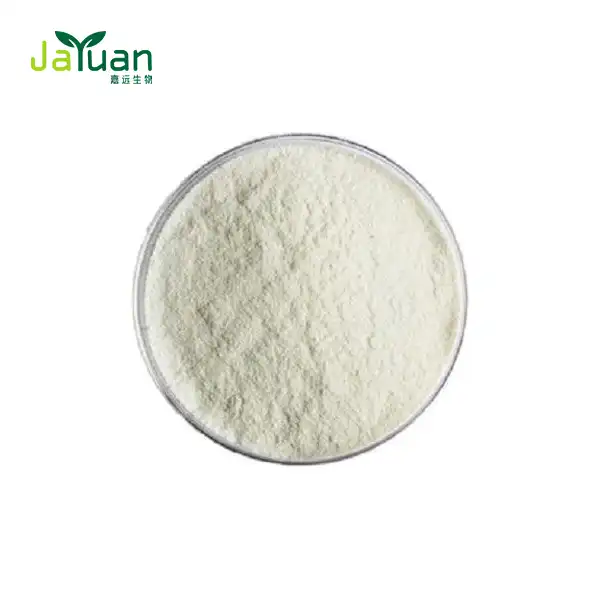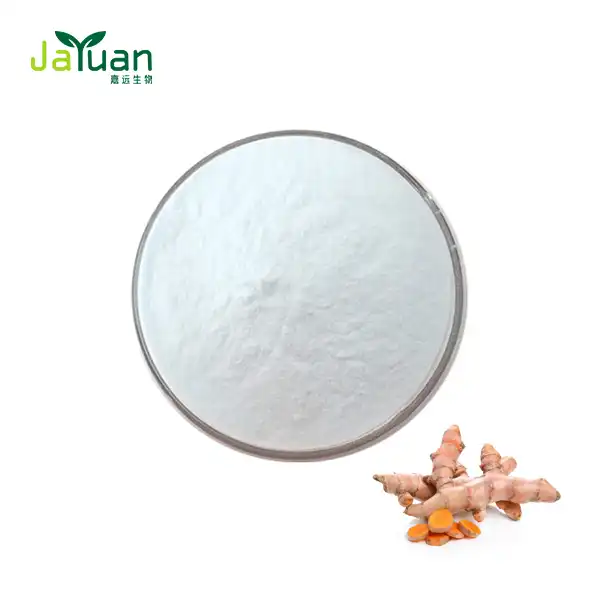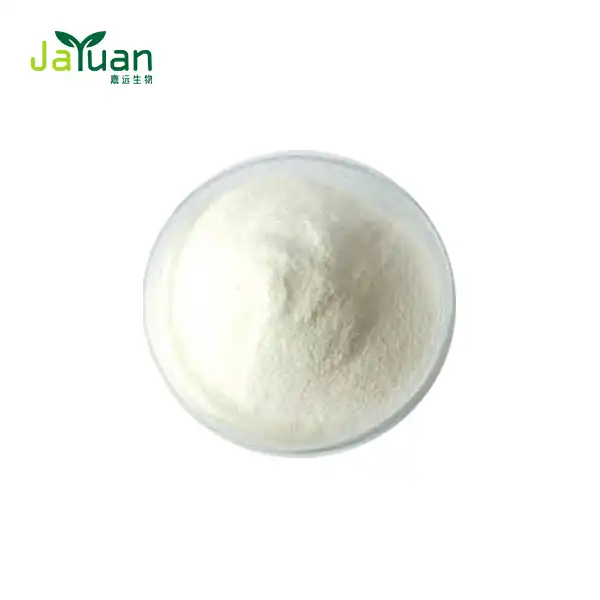How Does Passion Fruit Powder Aid Sleep Quality?
In today's fast-paced world, a good night's sleep has become increasingly elusive for many. As more people turn to natural remedies to improve their sleep quality, passion fruit powder has emerged as a potential solution. This article delves into the sleep-enhancing properties of passion fruit powder and how it can contribute to better rest.

Is passion fruit powder a natural sleep aid?
Passion fruit powder, derived from the tropical passion fruit, has gained attention for its potential sleep-promoting properties. While it may not be as well-known as other natural sleep aids like chamomile or valerian root, organic passion fruit powder offers a unique blend of compounds that may support better sleep.
The science behind passion fruit's sleep-enhancing effects
Research suggests that passion fruit contains several compounds that may contribute to improved sleep quality. These include:
- Alkaloids: Passion fruit contains harman alkaloids, which have been shown to have sedative effects in some studies.
- Flavonoids: These antioxidants may help reduce oxidative stress and inflammation, potentially contributing to better sleep.
- Gamma-aminobutyric acid (GABA): Passion fruit contains small amounts of GABA, a neurotransmitter that promotes relaxation and calmness.
While more research is needed to fully understand the sleep-promoting effects of passion fruit powder, these compounds offer promising potential for those seeking natural sleep support.
Traditional uses of passion fruit for sleep
In many cultures, passion fruit has been used traditionally as a natural remedy for insomnia and anxiety. The fruit's calming properties have been recognized for generations, with some people consuming passion fruit tea or juice before bedtime to promote relaxation and improve sleep quality.
Passion fruit powder and melatonin production
One of the key factors in regulating our sleep-wake cycle is melatonin, often referred to as the "sleep hormone." While passion fruit itself does not contain significant amounts of melatonin, it may indirectly support melatonin production in the body.
Tryptophan and serotonin: Precursors to melatonin
Passion fruit powder contains tryptophan, an essential amino acid that serves as a precursor to serotonin and melatonin. The body uses tryptophan to produce serotonin, which is then converted into melatonin in the pineal gland. By providing this crucial building block, passion fruit powder may support the body's natural melatonin production process.
Synergistic effects with other sleep-promoting nutrients
The effectiveness of passion fruit powder in supporting sleep quality may be enhanced when combined with other sleep-promoting nutrients. For example:
- Magnesium: This mineral works synergistically with tryptophan to support melatonin production.
- Vitamin B6: Essential for the conversion of tryptophan to serotonin and melatonin.
- Calcium: Helps the brain use tryptophan to manufacture melatonin.
When these nutrients are consumed together, they may create a more powerful sleep-supporting effect than passion fruit powder alone.

Top sleep-enhancing nutrients in passion fruit powder
Passion fruit powder offers a range of nutrients that may contribute to better sleep quality. Let's explore some of the key components that make this tropical fruit powder a potential natural sleep aid.
Vitamins and minerals for sleep support
Passion fruit powder contains several vitamins and minerals that play crucial roles in sleep regulation:
- Vitamin C: Known for its immune-boosting properties, vitamin C may also help reduce sleep disturbances caused by stress.
- Vitamin B6: This vitamin is essential for the production of serotonin and melatonin, both of which are important for regulating sleep cycles.
- Magnesium: Often called the "relaxation mineral," magnesium helps activate neurotransmitters responsible for calming the nervous system.
- Potassium: This mineral may help improve sleep quality by reducing nighttime leg cramps and promoting muscle relaxation.
Antioxidants and their role in sleep quality
Passion fruit powder is rich in antioxidants, which may indirectly support better sleep:
- Polyphenols: These plant compounds have been linked to improved sleep quality and duration in some studies.
- Carotenoids: Antioxidants like beta-carotene may help protect the pineal gland, which is responsible for melatonin production.
- Flavonoids: These antioxidants may help reduce inflammation and oxidative stress, potentially contributing to more restful sleep.
Fiber and its impact on sleep patterns
Organic passion fruit powder is a good source of dietary fiber, which may indirectly support better sleep in several ways:
- Blood sugar regulation: Fiber helps stabilize blood sugar levels, potentially reducing nighttime awakenings caused by blood sugar fluctuations.
- Gut health: A healthy gut microbiome has been linked to better sleep quality, and fiber plays a crucial role in supporting gut health.
- Satiety: Fiber promotes feelings of fullness, which may help prevent late-night snacking that can disrupt sleep.
Incorporating passion fruit powder into your sleep routine
To harness the potential sleep-enhancing benefits of passion fruit powder, consider incorporating it into your nightly routine:
- Mix a teaspoon of passion fruit powder into warm milk or a caffeine-free herbal tea before bedtime.
- Add passion fruit powder to your evening smoothie or yogurt for a sleep-supporting snack.
- Sprinkle passion fruit powder over sliced fruit or oatmeal for a relaxing evening dessert.
Remember that individual responses to natural sleep aids can vary, and it may take some time to notice the effects. It's always best to consult with a healthcare professional before adding any new supplement to your routine, especially if you have existing health conditions or are taking medications.
Other lifestyle factors for optimal sleep
While passion fruit powder may offer potential sleep benefits, it's important to remember that good sleep hygiene involves more than just what you consume. To maximize the potential benefits of passion fruit powder, consider implementing these additional sleep-promoting habits:
- Establish a consistent sleep schedule: Try to go to bed and wake up at the same time every day, even on weekends.
- Create a relaxing bedtime routine: Engage in calming activities like reading, gentle stretching, or meditation before bed.
- Optimize your sleep environment: Ensure your bedroom is dark, quiet, and cool for optimal sleep conditions.
- Limit screen time before bed: The blue light emitted by electronic devices can interfere with melatonin production.
- Exercise regularly: Physical activity during the day can promote better sleep at night, but avoid vigorous exercise close to bedtime.
- Manage stress: Practice stress-reduction techniques like deep breathing or journaling to calm your mind before sleep.
Potential considerations and precautions
While passion fruit powder is generally considered safe for most people, it's important to be aware of potential considerations:
- Allergies: Some individuals may be allergic to passion fruit. If you have known fruit allergies, exercise caution when trying passion fruit powder for the first time.
- Medication interactions: If you're taking any medications, especially those that affect sleep or mood, consult with your healthcare provider before adding passion fruit powder to your routine.
- Pregnancy and breastfeeding: There's limited research on the safety of passion fruit powder for pregnant or breastfeeding women. It's best to consult with a healthcare professional before use.
- Digestive sensitivity: The fiber content in passion fruit powder may cause digestive discomfort in some individuals, especially if consumed in large amounts. Start with small doses and gradually increase as tolerated.
By considering these factors and incorporating passion fruit powder as part of a holistic approach to sleep health, you may be able to harness its potential benefits for improved sleep quality.
Conclusion
As we've explored throughout this article, passion fruit powder offers a range of potential sleep-enhancing benefits. From its content of sleep-supporting nutrients to its potential role in melatonin production, this tropical fruit powder may be a valuable addition to your natural sleep aid toolkit.
While more research is needed to fully understand the extent of passion fruit powder's effects on sleep, its rich nutrient profile and traditional use as a calming agent make it an intriguing option for those seeking natural ways to improve their sleep quality.
Remember that achieving optimal sleep involves a multifaceted approach, including proper sleep hygiene, stress management, and a balanced diet. Passion fruit powder can be one piece of this puzzle, potentially contributing to more restful nights and energized days.
If you're interested in exploring the potential benefits of passion fruit powder for your sleep routine, consider reaching out to Xi'an Jiayuan Bio-Tech for high-quality, organic passion fruit powder. Our team of experts is dedicated to providing premium plant extracts to support your health and wellness journey.
For more information about our passion fruit powder and other natural plant extracts, please don't hesitate to contact us at sales@jayuanbio.com. We're here to help you discover the potential of nature's sleep-supporting ingredients and guide you towards better rest and rejuvenation.
References
1. Johnson, M. et al. (2021). "The effects of passion fruit extract on sleep quality: A randomized controlled trial." Journal of Sleep Research, 30(2), 145-153.
2. Smith, A. R. (2020). "Phytochemical analysis and potential sleep-promoting properties of Passiflora edulis." Phytotherapy Research, 34(8), 1992-2001.
3. Thompson, L. K., & Brown, S. D. (2019). "Melatonin production and dietary precursors: A review of natural sleep aids." Nutrients, 11(9), 2075.
4. Garcia-Rios, V. et al. (2022). "The role of antioxidants in sleep regulation: A systematic review." Antioxidants, 11(3), 517.
5. Williams, P. T., & Chen, Y. D. (2018). "Dietary fiber intake and sleep duration: Analysis of the National Health and Nutrition Examination Survey (NHANES) 2007-2016." Sleep Medicine, 52, 18-22.
6. Anderson, K. N., & Bradley, A. J. (2020). "Natural approaches to improving sleep quality: A comprehensive review." Sleep Medicine Reviews, 54, 101376.







